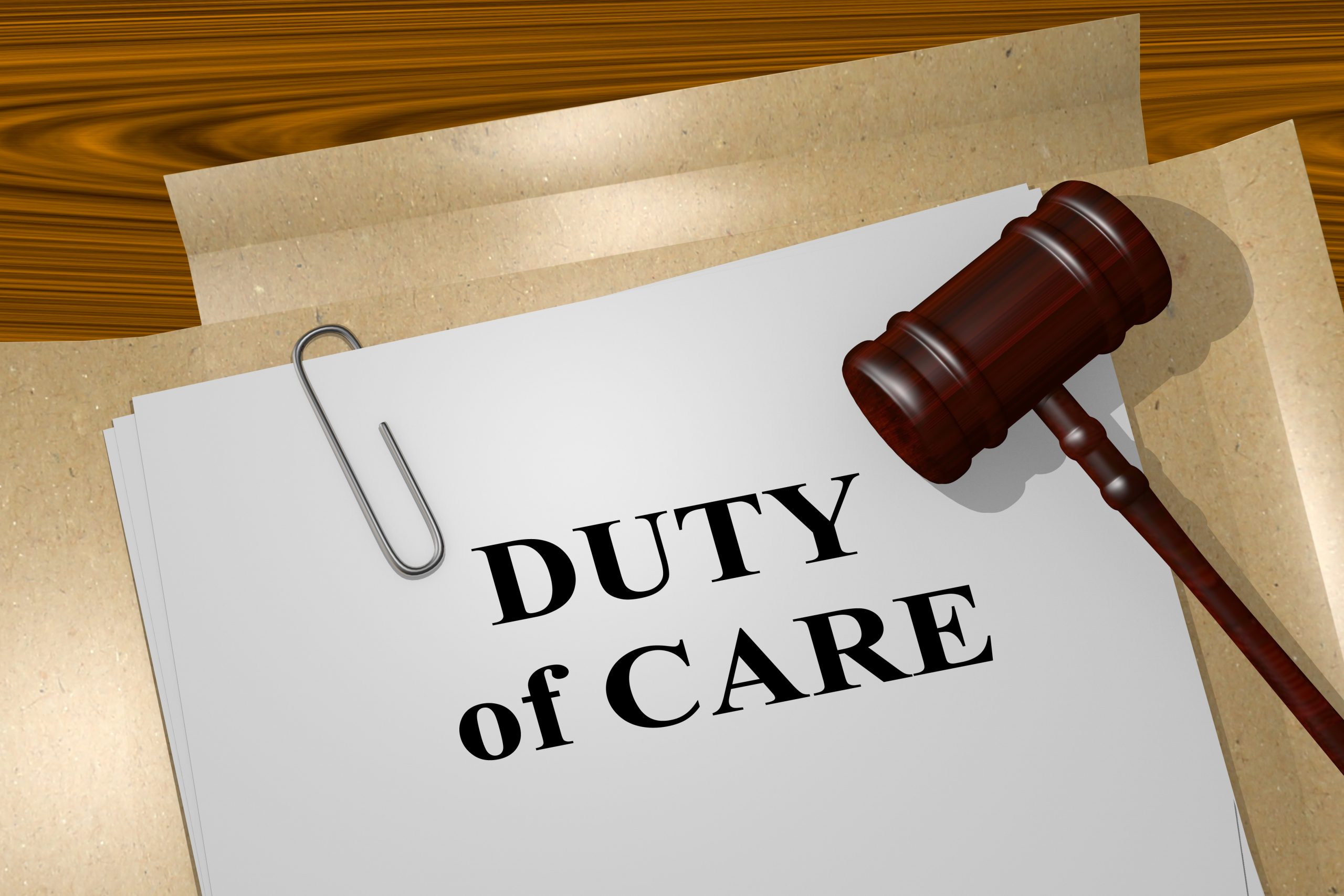What Is The Duty Of Care?
 To prove fault in most personal injury lawsuits, a plaintiff must show that the defendant was negligent. Victims have the burden of demonstrating four legal elements to prove negligence. The first element of negligence is the at-fault party’s duty of care. Typically, this is one of the easiest elements to prove because everyone has a basic obligation to avoid unnecessarily injuring others. The duty to act appropriately is relevant in almost every situation and is often assumed by being in another’s vicinity. In other words, you must implement the same degree of caution and consideration that a reasonable person would exercise given the same situation. Someone does not need to assume the duty of care to another party voluntarily. It can be imposed just by being in a specific place at a specific time.
To prove fault in most personal injury lawsuits, a plaintiff must show that the defendant was negligent. Victims have the burden of demonstrating four legal elements to prove negligence. The first element of negligence is the at-fault party’s duty of care. Typically, this is one of the easiest elements to prove because everyone has a basic obligation to avoid unnecessarily injuring others. The duty to act appropriately is relevant in almost every situation and is often assumed by being in another’s vicinity. In other words, you must implement the same degree of caution and consideration that a reasonable person would exercise given the same situation. Someone does not need to assume the duty of care to another party voluntarily. It can be imposed just by being in a specific place at a specific time.
Breaching The Duty Of Care
The defendant does not need to know you to owe you reasonable care. However, the duty can be based on the relationship of the parties. Additionally, according to New York law, those in certain positions or professions can be held to a higher standard of care to prevent harm. After determining that a defendant owed you a duty of care, you must show how they breached it. A breach arises when an individual’s actions or inactions fail to meet the appropriate standard of care. When a defendant is required to act a certain way and fails to do so, they may be regarded as having breached their duty. Depending on the circumstances, the standard can be breached in numerous ways. Some common examples of breaches include:
- Distracted Driving: When a driver texting on her phone runs a red light and crashes into another vehicle, she has neglected her duty of care to pay attention and drive reasonably to prevent needless accidents.
- Medical Malpractice: When an operating surgeon is in a rush and leaves a scalpel inside of a patient, that surgeon fails to provide the same level of treatment that another similarly trained doctor would have provided. Consequently, the surgeon breached his duty of care and can be held liable for the patient’s injuries.
- Premises Liability: All landlords have a legal duty to maintain their buildings in a reasonably safe manner. If a landlord knows that his apartment building has broken stairs and fails to repair them, he can be held liable if a tenant falls on that stairway.
- Defective Products: If a T.V. has a defect that causes it to catch fire, the manufacturer can be held responsible for producing an inherently dangerous television. All manufacturers must produce products that are reasonably safe for their intended uses.
Contact Us To Learn More About The Duty Of Care
Suppose you or a family member have suffered severe injuries in an accident. In that case, you should allow the Dietrich Law Firm P.C.’s battle-tested attorneys to hold the responsible party liable. When the breach of a duty of care causes you to suffer harm, you may be eligible to obtain compensation for your hospital bills, lost earnings, pain and suffering, loss of consortium, and any other unanticipated losses. Jed Dietrich, Esq., and his leading lawyers are dedicated to getting you the best possible result. Don’t hesitate to contact our seasoned team today at 716-839-3939 or by completing our online consultation form.
 Buffalo Personal Injury Lawyer News
Buffalo Personal Injury Lawyer News

